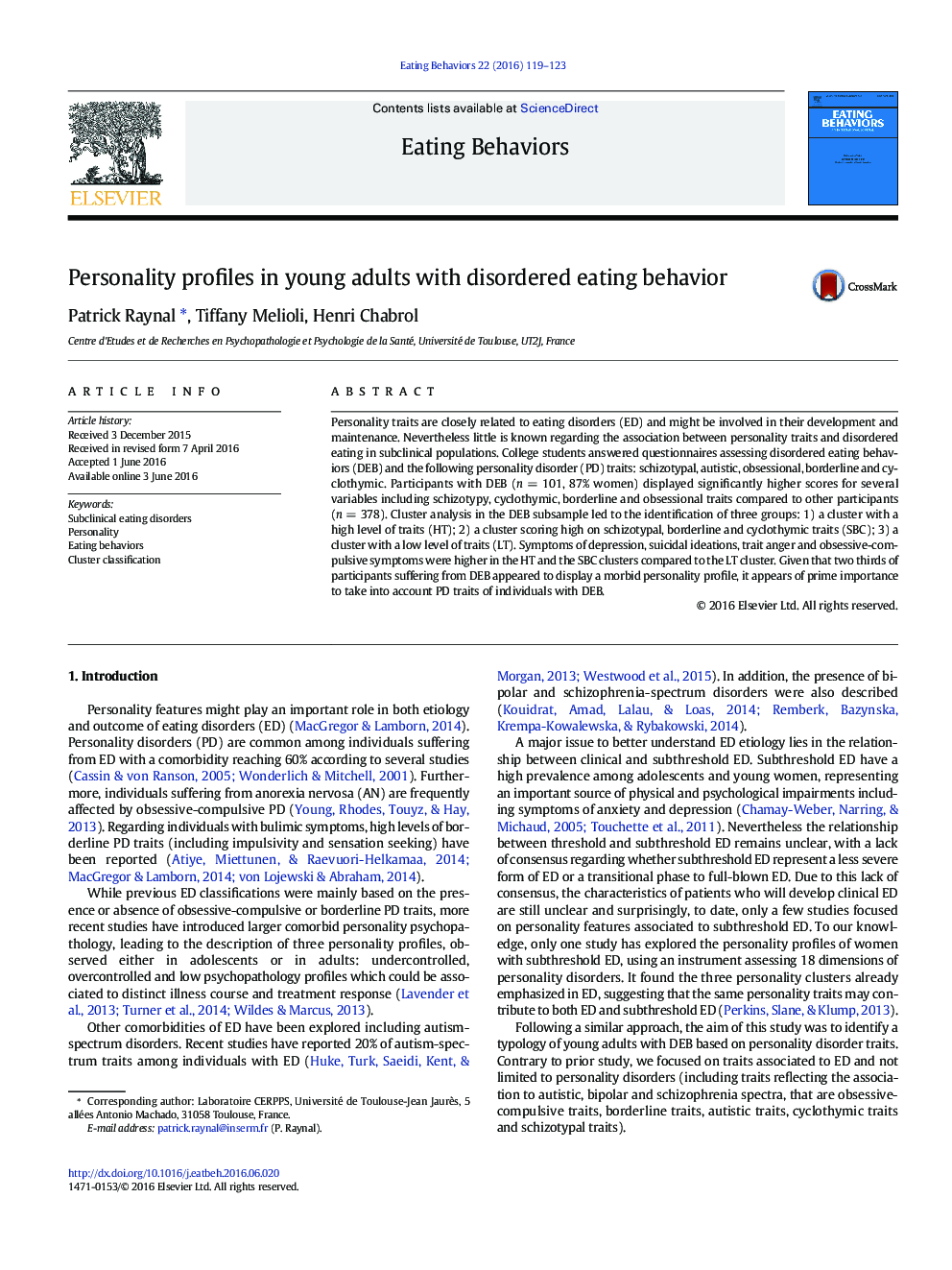| Article ID | Journal | Published Year | Pages | File Type |
|---|---|---|---|---|
| 906201 | Eating Behaviors | 2016 | 5 Pages |
•101 college students with disturbed eating behavior were classified on personality disorder traits•Schizotypal, autistic, obsessional, borderline and cyclothymic traits were used•3 distinct clusters were obtained: high-traits, low-traits and schizotypal-borderline-cyclothymic•Symptoms of depression, suicidal ideas, obsessive-compulsion and trait anger varied between groups
Personality traits are closely related to eating disorders (ED) and might be involved in their development and maintenance. Nevertheless little is known regarding the association between personality traits and disordered eating in subclinical populations. College students answered questionnaires assessing disordered eating behaviors (DEB) and the following personality disorder (PD) traits: schizotypal, autistic, obsessional, borderline and cyclothymic. Participants with DEB (n = 101, 87% women) displayed significantly higher scores for several variables including schizotypy, cyclothymic, borderline and obsessional traits compared to other participants (n = 378). Cluster analysis in the DEB subsample led to the identification of three groups: 1) a cluster with a high level of traits (HT); 2) a cluster scoring high on schizotypal, borderline and cyclothymic traits (SBC); 3) a cluster with a low level of traits (LT). Symptoms of depression, suicidal ideations, trait anger and obsessive-compulsive symptoms were higher in the HT and the SBC clusters compared to the LT cluster. Given that two thirds of participants suffering from DEB appeared to display a morbid personality profile, it appears of prime importance to take into account PD traits of individuals with DEB.
